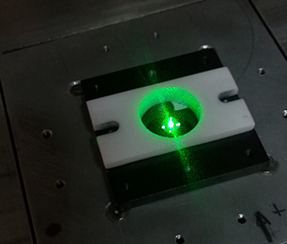The non-specific adsorption of proteins on unmodified nanoparticles upon contact with biological matrices limits their applications in biomedicine. Most common strategies to control it involve "passivating" the NP surface by functionalizing it with polymers of different nature. While there are several examples in the literature of protein-resistant nanoconstructs, experimental information is scattered and heterogeneous, without a detailed understanding of how the anti-adsorption properties depend on the parameters of the engineered NPs, such as the properties of surface ligands, surface curvature, proteins in solution, and physicochemical conditions of the environment (pH and ionic strength). In this project, we aim to exploit the molecular detail provided by adequate computational modeling to gain a fundamental understanding of the interactions that take place at the interface between polymer-modified hybrid nanomaterials and proteins in solution, governing the adsorption processes.
Ongoing Projects
Protein translocation through hybrid nanopores
Effects of molecular confinement in mesoporous nanosystems

Group leader
Estefanía Gonzalez Solveyra
CONICET Assistant Researcher
PHD student
Iskra Zambrano

Estefanía Gonzalez Solveyra
Group Leader
CONICET Assistant Researcher.
Bachelor's and Ph.D. in Chemistry from the University of Buenos Aires. She completed her postdoctoral research in the group of Prof. Igal Szleifer (Northwestern University).